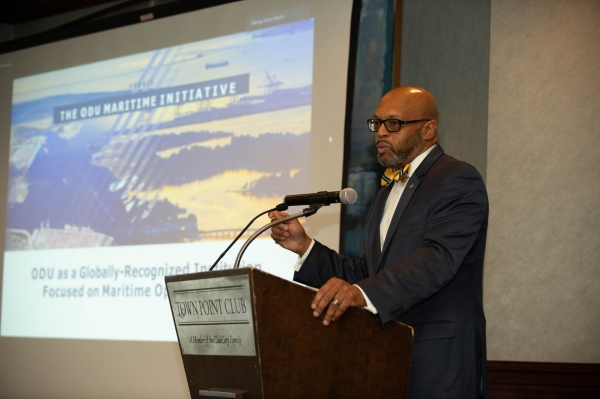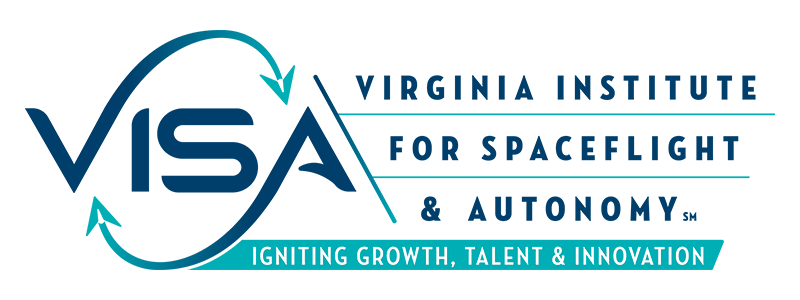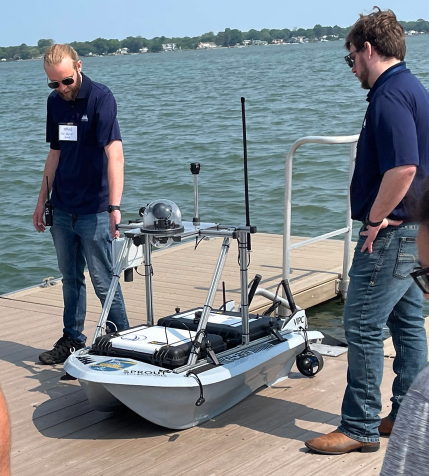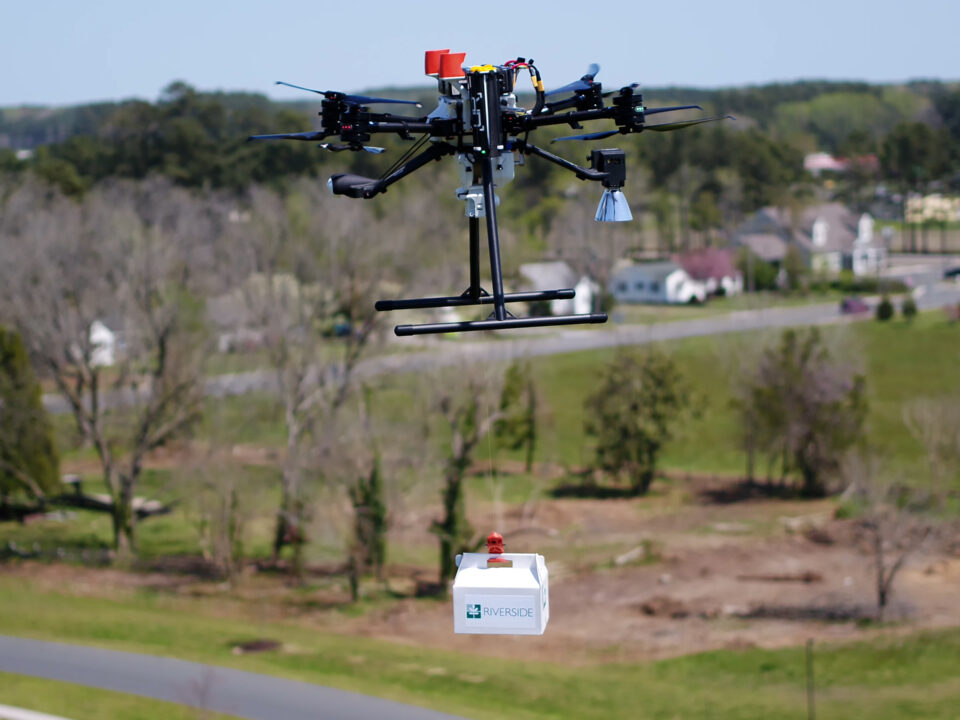
ODU, HRMC Announce Maritime Innovation Initiatives
November 4, 2021
ODU’s Morris Foster Reappointed to Virginia Space Flight Authority
January 14, 2022Governor Northam Announces More Than $3.6 Million in Growth and Opportunity Virginia Grants

GO Virginia funding will attract businesses, support infrastructure and workforce development programs
RICHMOND—Governor Ralph Northam today announced more than $3.6 million in Growth and Opportunity for Virginia (GO Virginia) grants to support thirteen projects focused on expanding workforce development and talent pipelines in key industries, fostering business, and improving infrastructure.
“GO Virginia allows us to address the unique needs of localities across the Commonwealth,” said Governor Northam. “This targeted support is critical, both for local projects and for encouraging long-term regional collaboration. These thirteen projects will foster innovation, support entrepreneurs, and drive economic growth across the Commonwealth.”
This round of grants include 12 regional projects and one project through GO Virginia’s Economic Resilience and Recovery Program. The awarded projects will receive an additional $4.9 million in local and non-state resources.
“Virginia boasts a diverse economy, and each geographic region has distinct economic characteristics,” said Secretary of Commerce and Trade Brian Ball. “GO Virginia has been effective in responding to those differences, as its regional approach fosters innovative ideas, programs, and strategies throughout the Commonwealth as demonstrated by these awarded projects.”
“Congratulations to today’s awardees and to their respective regional councils,” said GO Virginia Board Chair Nancy Howell Agee. “GO Virginia has created a foundation over the past four years that is giving regions the tools to develop high-impact solutions that have helped us tackle the economic setbacks of the COVID-19 pandemic while also focusing on longer term economic development strategies and objectives. These projects are a testament to how thinking creatively and collaborating deeply with localities, private industry, and other stakeholders has proven to be successful, making a difference in the lives of all Virginians.”
Since the program’s inception in 2017, GO Virginia has funded 208 projects and awarded approximately $78 million to support regional economic development efforts. To learn more about the GO Virginia program, visit dhcd.virginia.gov/gova
2021 ROUND FOUR REGIONAL GRANT AWARDS:
Project Seed – Innovation Hub at Midtown Square | $674,304
Region 3: Counties of Cumberland and Prince Edward
Longwood University, in partnership with Hampden Sydney College, will connect the community to local and regional resources for business and social entrepreneurship development by establishing an Innovation Hub in Downtown Farmville. This hub will include a digital makerspace, a community co-working space, a Small Business Development Center office to accelerate business concepts and an educational outreach center to host youth entrepreneurship courses and educator professional development opportunities to develop entrepreneurial education practice in the classroom.
Pathway Park Infrastructure | $600,000
Region 1: Counties of Bland and Smyth
The Smyth County Economic Development Authority will further advance a business-ready development site by installing 2,000 feet of 8-inch water line and 1,600 feet of sewer line to Pathway Park, a 70-acre site in Smyth County. The project also includes the formation of a Regional Industrial Facilities Authority (RIFA) between Bland and Smyth counties to allow the localities to collaborate and competitively market the site for manufacturers and distribution centers.
Project Eagle+ | $599,437
Region 2: Montgomery County and the city of Roanoke
The Virginia Tech Corporate Research Center (VTCRC), a wholly-owned subsidiary of the Virginia Tech Foundation (VTF), in partnership with the city of Roanoke, Montgomery County, and Johnson & Johnson JLABS, will support a three-prong approach to grow the region’s health and life science cluster. Project Eagle+ will pilot a shared lab facility in Blacksburg at the VTCRC to meet the demand from small, early-stage companies, many of which are spinoffs from Virginia Tech and/or alumni of the Regional Accelerator & Mentoring Program (RAMP).
Agricultural Innovation Center | $550,000
Region 8: Cities of Buena Vista and Lexington, and the counties of Augusta and Rockbridge
The Advancement Foundation and partners will create a multi-use facility featuring a business incubator and classrooms, agriculture and food tech labs, and a small-scale manufacturing space, as well as a processing and product development space. Strategically located in downtown Buena Vista, the Agricultural Innovation Center will transform a vacant 37,000-square-foot factory into a flagship, agricultural innovation facility that will grow the region’s entrepreneurial ecosystem, support Buena Vista’s downtown revitalization and serve as a model for future agricultural enterprise facilities in the Shenandoah Valley.
Mobilizing the Supply Chain with Critical Infrastructure | $212,200
Region 1: Scott County, the city of Bristol and the town of Duffield
Appalachian Sustainable Development (ASD) will create critical infrastructure in the food supply chain, including outfitting building space at Appalachian Harvest Food Hub with the equipment and space needed to process produce. This new infrastructure will help increase processing capacity and revenue for small scale agricultural product producers, a priority industry sector for Region 1. This facility will also enable trainees to learn value-added processing techniques in preparation for the increasing need for small-scale local food production and grocers’ needs for trained workers.
Convene and Collaborate – Region 7 REI | $193,751
Region 7: Counties of Fairfax and Loudoun
George Mason University (GMU) will lead Region 7’s Regional Entrepreneurship Initiative through convening and collaborating with entrepreneurial ecosystem players to develop a comprehensive ecosystem strategy and identify a coordinator for the region’s entrepreneurial ecosystem. GMU will engage with stakeholders through an advisory board, including regional council representatives, wide outreach to stakeholders for a series of engagement events, followed by the convening of workgroups and information synthesis garnered from events outreach.
Innovation Center Roadmap | $100,000
Region 7: Fairfax County and the city of Fairfax
NOVA Labs will develop a plan to expand their Innovation Center, add new tools and equipment, and support programs for member companies that will contribute to their success and growth. The project’s long-term goal is to double the number of entrepreneur members and double the Innovation Center’s prototyping capacity in order to enhance Region 7’s start-up ecosystem, small business growth and technical workforce.
Unmanned Autonomous Systems (UxS) Route/Corridor Network Study | $100,000
Region 5: Cities of Hampton and Norfolk
Old Dominion University’sVirginia Institute for Spaceflight and Autonomy (VISA) will examine how a network of nodes and routes utilizing air, ground and water through unmanned systems could expedite the transport of goods, services and travelers between currently underutilized entry points. The study will help inform the Autonomous Systems Strategic Playbook for Region 5, and leverage state and federal investment in maritime- and aviation-related facilities at NASA Wallops, Accomack County Airport, Fort Monroe, Cape Charles and others.
The Future Kings STEM Pipeline Project Focused on Black and Latino Boys | $97,000
Region 7: Prince William County and the city of Manassas
Future Kings, a workforce development program that targets Black and Latino boys who are in grades 6 to 12, will lead a study to determine the feasibility of expanding the Future Kings program.
RIoT Pre-Accelerator Program | $96,804
Region 6: Counties of King George and Stafford, and the city of Fredericksburg
Regional Internet of Things (RIoT) will launch three six-week, pre-accelerator programs to help entrepreneurs who are still in the early-concept stage launch their new businesses. The pre-accelerator is a key component of a regional startup support system and will further the RIoT Accelerator Program (RAP). This project will create 12 businesses and 25 jobs, as well as generate $1.5 million in revenue.
Strategy and Roadmap for Growing the Controlled Environmental Agriculture (CEA) Sector | $77,053
Region 3: Counties of Amelia, Buckingham, Brunswick, Charlotte, Cumberland, Halifax, Lunenburg, Henry, Mecklenburg, Nottoway, Patrick, Pittsylvania, and Prince Edward, and the cities of Danville and Martinsville
The Institute for Advanced Learning and Research (IALR), in partnership with the Virginia Tech Center for Economic and Community Engagement, will develop a strategy and roadmap for supporting industry growth and workforce development for Controlled Environmental Agriculture (CEA) in Region 3. The strategy and roadmap will include an analysis of this emerging and dynamic agribusiness sector, including its industry and economic growth potential while identifying and validating needed facilities and infrastructure, workforce development issues, opportunities and applied research assets.
Project Veer | $49,750
Region 1: Counties of Washington and Wise, and the city of Bristol
InvestSWVA will perform a market analysis to evaluate opportunities for Region 1’s manufacturers to participate in the onshore and offshore wind supply chain. Project Veer builds on the region’s manufacturing history, recent efforts to become a key player in the renewable energy economy and regional strategies to advance as a manufacturing hub. This project will help manufacturers assess the business opportunity and assist companies in looking to diversify.
ECONOMIC RESILIENCE AND RECOVERY AWARDS:
Growing the Pipeline: Expanding Early Stage Entrepreneurship Support | $250,000
Region 4: Counties of Henrico and Chesterfield, and the city of Richmond
Startup Virginia (SVA) will lead an effort to expand support for early-stage entrepreneurs through the implementation of technology platforms, addition of staff, and enhancement of incubator services and further development of two programs designed specifically for earliest-stage startups, the Idea Factory and the Entrepreneur Certificate Course. This project will support the entrepreneurial rise created by the pandemic to cultivate and expand the pool of early-stage startups in Region 4 by increasing SVA’s incubator capacity to support more aspiring entrepreneurs while enhancing incubator services for early-stage startups who desire to move beyond the idea stage.
# # #





